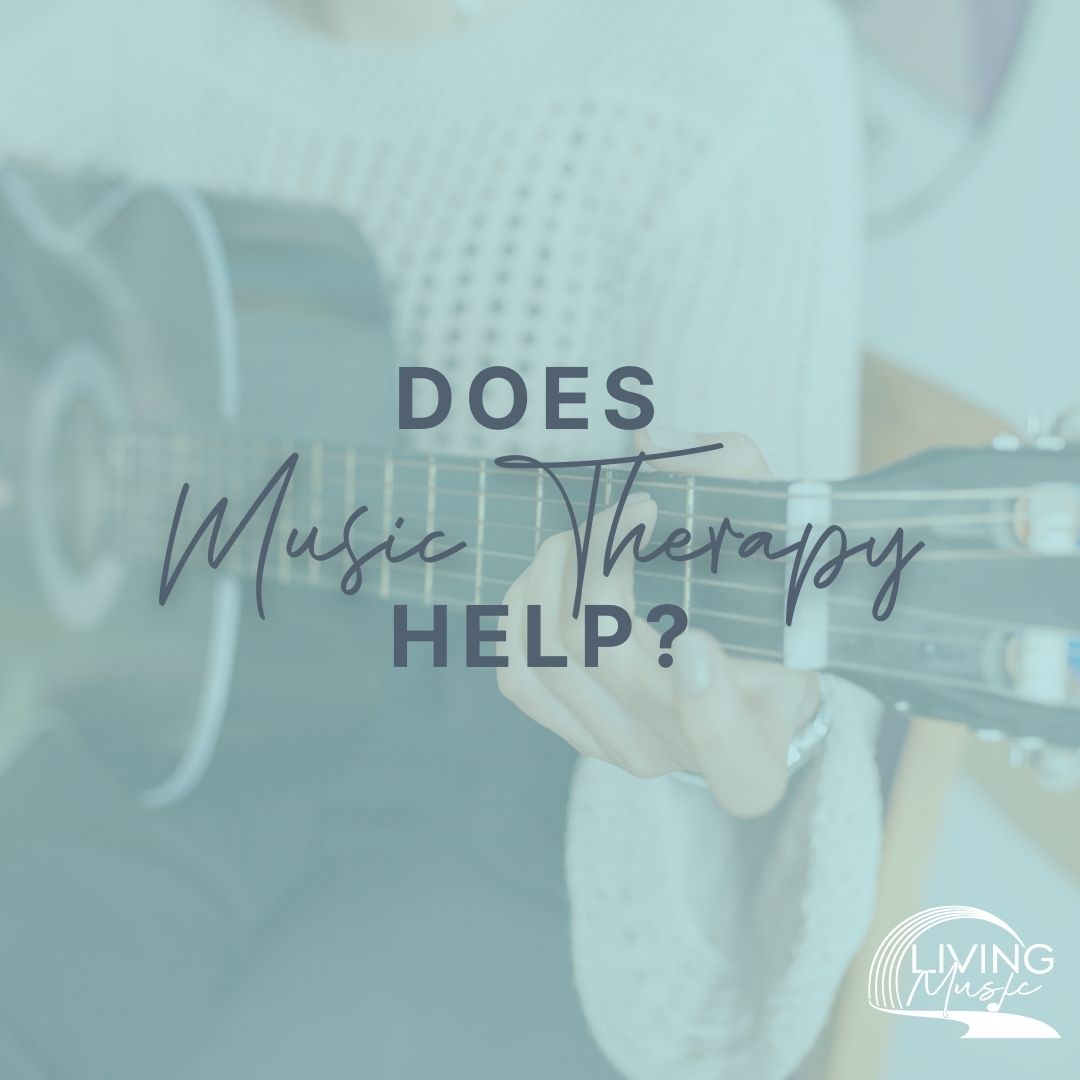

Very often, I get questions from people asking me if music therapy can help a specific health concern that a loved one has. Most recently, more and more people know about music therapy and have heard about the treatment of music therapy (if you haven’t, check out this video), but they are still not so sure how it “works”. So, how does music therapy work? And does it help (Depression, Dementia, Trauma, Grief, Neurological Disorders, etc)?
Evidence shows that music therapy has many benefits for a variety of physical and mental health issues (yes, we have many peer-reviewed and randomized control studies in medical journals!). Beyond the research however, I believe there to be deeper meaning as to why music–and the carefully planned way music therapists use it–is effective in treating so many things.
Remember “Living Music”? I wanted to name my business this because of these things I truly believe about the way I, as a music therapist, feel about music.
- We are musical beings. No other species has music in their lives, but we as humans thrive on this unique part of our lives.
- We need to experience music in our lives to connect with others, connect with ourselves, regulate our emotions, and amplify our memories.
- Sometimes, we need help to achieve better health and/or wellness, and “living” our music–paying attention to what music means to us, how it effects our minds and bodies, and how it connects us to the world–does just this.
As a music therapist, I carefully plan music experiences and interventions to reflect a person’s needs moment to moment, each time I’m with them. With my voice and instruments, I compose and improvise a music experience that allows my client to live in the music, find support in this place, and grow, change and adapt as they participate in whatever level they feel they can. Deep in the brain, wonderful things are happening when we meet in music. New connections are made and clearer signals are heard, allowing outward responses that may not happen without music. It’s working!
So, YES! Music therapy works, and it can help a variety of physical and mental issues. Music (whether you are musically talented or not) is in us all, and it’s my job to figure out how to use it in a therapeutic relationship to achieve your health goals.
If you’re interested in learning more about how music therapy could help you or a loved one, contact me here, and connect with me on Facebook to hear more stories about music therapy.
